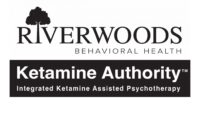
Many aren't aware that the success of ketamine therapy for trauma largely hinges on the integration process following the sessions. We've discovered that preparing thoroughly for your experience, ensuring safety and comfort during therapy, and building a solid support network afterward are pivotal steps.
But how exactly can one enhance these aspects to maximize the benefits of ketamine therapy for trauma integration? Stick around as we uncover five crucial tips that could make a substantial difference in your healing journey, sharing insights that might just transform your approach to this innovative treatment.
Understanding Ketamine's Role
To fully grasp ketamine's potential in trauma therapy, it's crucial to understand its unique role within the brain's chemistry. Ketamine acts on the NMDA receptors in the brain, which play a significant part in mood regulation and the formation of memories. Unlike traditional antidepressants that target serotonin, ketamine offers rapid relief from depressive symptoms, making it a game-changer for those who haven't found success with other treatments.
We've observed that ketamine can help create new neural pathways, essentially 'resetting' the brain. This aspect is particularly beneficial for individuals with PTSD or those dealing with severe trauma, as it allows them to process these experiences differently. When combined with therapy, ketamine can facilitate a deeper exploration of traumatic memories without the overwhelming emotional response that usually accompanies them.
Moreover, ketamine's ability to dissociate one from their immediate surroundings and feelings can be incredibly therapeutic. It provides a unique opportunity for individuals to step back and view their experiences from a new perspective, promoting healing and integration of traumatic memories. This dissociative quality, when guided by a trained professional, can make therapy more effective, helping individuals navigate their trauma with a renewed sense of clarity and understanding.
Preparing for Your Session
Before embarking on a journey with ketamine therapy, it's essential we prepare meticulously to maximize the benefits of our session. This preparation involves several key steps that we can't overlook. First, we'll need to ensure we're well-informed about what the therapy entails. This means doing our homework, reading up on ketamine therapy, and understanding its potential effects and the process we'll undergo.
It's also crucial we set clear goals for what we hope to achieve through the therapy. Are we seeking relief from symptoms of PTSD, depression, or another condition? Having a clear objective in mind will help us and our therapist tailor the session to meet our needs.
Additionally, we should engage in introspective practices leading up to our session. Meditation, journaling, or simply spending time in nature can help us center ourselves and clarify our intentions for the therapy. This mental and emotional preparation is just as important as any other step.
Enhancing Safety and Comfort
Ensuring every participant's safety and comfort is paramount in maximizing the effectiveness of ketamine therapy sessions. We've found that a welcoming environment, where individuals feel secure and at ease, significantly enhances the therapeutic experience. To achieve this, we prioritize creating a calm and serene setting. Soft lighting, comfortable seating, and a quiet space contribute to a sense of tranquility, making it easier for participants to relax and open up to the process.
We also emphasize the importance of clear communication throughout the therapy. Before beginning, we ensure that every participant fully understands the procedure, what to expect, and how to communicate their needs or discomfort at any point. This transparency builds trust and helps alleviate any anxieties about the treatment.
Furthermore, we closely monitor each participant's physical and emotional responses during the session. Our trained professionals are always on hand to provide reassurance and support, adjusting the approach as needed to maintain a positive and safe experience.
Integrating Experience Post-Therapy
After ensuring the safety and comfort of participants during ketamine therapy sessions, we focus on the crucial step of integrating their experiences once the therapy concludes.
We start by encouraging participants to journal their thoughts and feelings in the days following a session. This practice helps solidify insights and emotional breakthroughs, making them more accessible for future reflection and discussion. We've found that writing not only aids in processing the experience but also in identifying patterns over time.
We also recommend setting aside quiet time for meditation or mindful reflection. This isn't about trying to force clarity but allowing the subconscious to surface insights at its own pace. Meditation fosters a state of open receptiveness, crucial for integrating complex emotional landscapes.
Next, we facilitate one-on-one discussions between participants and their therapists. These conversations are tailored to help individuals explore the meanings and implications of their experiences. By verbalizing their thoughts and emotions, participants often discover new layers of understanding and healing.
Lastly, we emphasize the importance of patience in the integration process. It's a journey, not a race, and each person's path to integration is unique. We're here to support that journey, step by step, ensuring each participant can fully benefit from their ketamine therapy experience.
Building a Support Network
Creating a solid support network can significantly enhance the benefits of ketamine therapy by providing emotional backing and understanding. We've found that sharing our journey with close friends, family, or a dedicated support group creates a safe space for expressing feelings and experiences. This network becomes invaluable, offering encouragement and perspective when we're navigating the complexities of integrating trauma.
We also encourage each other to connect with individuals who've undergone similar treatments. This peer support is crucial; it's comforting to know we're not alone in our experiences. These connections often provide practical advice and emotional support that are unique to the journey of healing with ketamine.
Furthermore, we've learned the importance of involving our therapists or counselors in this network. They play a pivotal role in guiding our conversations around our experiences, ensuring that we're processing our journey in a healthy and constructive manner. Their professional insight helps us to frame our experiences and encourages growth and understanding.
Frequently Asked Questions
What Are the Potential Long-Term Effects of Using Ketamine Therapy for Trauma Integration?
We're curious about the long-term effects of ketamine therapy for trauma integration. While it offers immediate relief and aids in processing traumatic memories, there's concern about dependency and potential cognitive impacts over time.
It's vital we stay informed and weigh the benefits against possible risks. Ensuring close monitoring and support throughout treatment can help mitigate these concerns, keeping the focus on healing and personal growth.
How Does Ketamine Therapy for Trauma Compare in Effectiveness to Traditional Psychotherapies or Medication Treatments?
We're exploring how ketamine therapy for trauma stacks up against traditional psychotherapies and medication treatments. It's fascinating to see the differences in effectiveness.
From our understanding, ketamine therapy offers a unique approach, potentially speeding up the healing process for some. However, it's not a one-size-fits-all solution.
We're keen to dive deeper into the nuances, comparing the long-term outcomes and how each method addresses the complexities of trauma.
Can Ketamine Therapy Trigger or Exacerbate Other Mental Health Issues, Such as Anxiety or Depression?
We've been wondering if ketamine therapy could potentially worsen other mental health conditions like anxiety or depression.
From what we've gathered, while it offers promising results for trauma treatment, there's a possibility it might trigger or intensify other issues.
It's crucial to approach it with caution and ensure it's part of a comprehensive treatment plan under professional guidance.
We're keen on understanding more about its impacts to navigate its use carefully.
Are There Specific Types of Trauma or Patient Profiles That Are More Likely to Benefit From Ketamine Therapy?
We've been wondering if certain traumas or patient profiles respond better to ketamine therapy.
It turns out, those with treatment-resistant depression or specific PTSD profiles often see more significant benefits.
It's not a one-size-fits-all solution, but for some, it's a game-changer.
Our journey's taught us to consider individual needs and histories closely when exploring this treatment, ensuring we're targeting the right approach for each unique situation.
How Does One Measure the Success or Progress of Trauma Integration Through Ketamine Therapy?
We're wondering how we can measure the success or progress of trauma therapy, especially when it comes to innovative treatments. It's tricky because everyone's journey is unique.
However, we're looking for signs like improved emotional stability, reduced symptoms of PTSD, and better overall functioning in daily life.
It's all about tracking these changes over time to see if the therapy's making a real difference in our lives.
Conclusion
In conclusion, we've discovered that maximizing trauma integration through ketamine therapy involves more than just showing up for a session. It's critical we understand ketamine's unique role, prepare ourselves mindfully, ensure our safety and comfort, actively integrate our experiences afterward, and build a strong support network.
By following these tips, we're not just undergoing therapy; we're embarking on a transformative journey. Together, we can navigate this path, making significant strides in healing and finding solace in our shared experiences.

